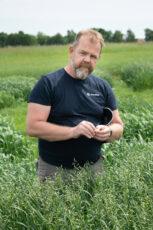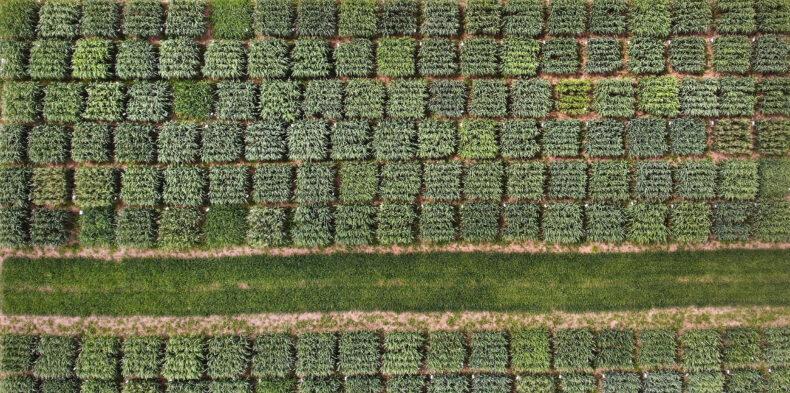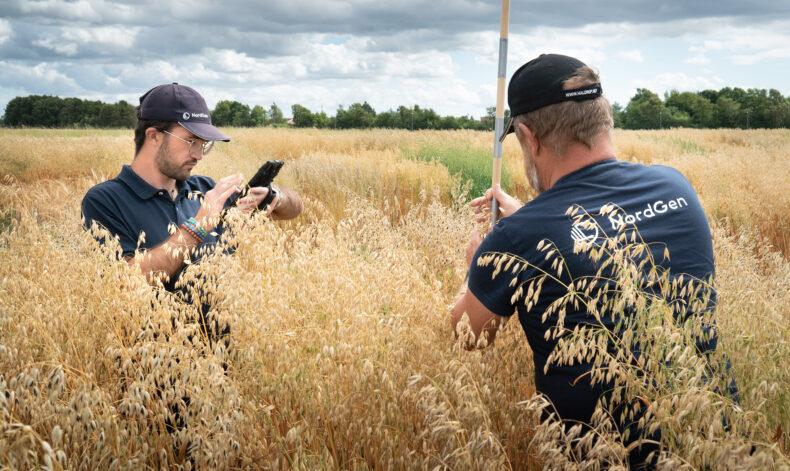Sweden
May 9, 2023

An extensive collaborative project is currently underway which aims to increase the knowledge of the oat varieties in the Nordic seed collection. Last summer, almost 800 different oat seed samples from NordGen were cultivated in the field to be analyzed based on various cultivation traits.
Roughly two-thirds of the Nordic seed collection consists of cereals. In this category there are about 1000 different accessions (seed samples) of oats that are conserved by NordGen. Interest in this crop has increased in recent years, not least due to the demand for plant-based foods. Right now, an extensive collaborative project is going with the aim to improve the knowledge of the Nordic oat collection.
Unique Project
Last summer, nearly 800 different accessions (seed samples) of oats from NordGen were sown in the field, among other things to study the plants’ cultivation traits. During the year, a project was developed to genotype all the accessions (i.e. genetic characteristics of the plant individual investigated through DNA analyses). NordGen, Oatly, Lantmännen and ScanOats share equally the costs of the DNA analyzes which are currently being conducted by bioinformaticians at ScanOats.

Jan Svensson, NordGen’s Senior Scientist on cereals.
“There has never been a similar project on Nordic oats before. We had the entire collection of cultivars and landraces out in the field so it’s a unique project. The data will hopefully be processed sometime next year,” says Jan Svensson, NordGen’s Senior Scientist on cereals.
One plant of each accession was also sown in a greenhouse by Lantmännen and leaf samples were taken from these plants for DNA analysis. The seeds produced from these plants will then be propagated by NordGen. In this way, a copy of the individual that was genotyped is created and a genotyped oat collection will be made available.
“This is done since there can be variation in, for example, a landrace. Therefore, we select one individual that matches the genotyped data. By doing so, researchers who are interested in specific data can go back and order seeds that match that information,” says Jan Svensson.
Incredible Diversity
The new data will result in much more knowledge about the collection and provide information on the genetic relationship between all the samples. Because of this, it will be easier for researchers and plant breeders to be able to choose exactly the varieties they have a use for in the future. A better described genebank collection thus becomes more useful for those actors who are interested in developing new oat varieties that are more nutritious, more profitable or better adapted to a changing climate.
 In this drone photo from June 2022, you can see the differences between different types of oat.
In this drone photo from June 2022, you can see the differences between different types of oat.
“A genebank collection can be compared to a library, but instead of books we have seed samples. The more information there is about each book, the easier it will be to know which one you want to recommend. Instead of ordering a large amount of seed samples, the user can find a limited selection that better matches the traits they are interested in,” says Jan Svensson.
NordGen and Oatly have also carried out characterization based on phenotype (physical characteristics such as straw height, grain color, panicle shape and tendency for shattering). The effort required many hours of work in the field, a job that demonstrated the genetic diversity among the 800 oat varieties.
 The photo shows straw height measured by the NordGen team.
The photo shows straw height measured by the NordGen team.
“We could see an incredible diversity in the collection. For example, 36 accessions had unilateral panicles (in Swedish “plymhavre”). In that group, the panicle emergence ranged from 51 to 85 days after sowing and the height ranged from 85 to 160 centimeters. We have started a process to be able to describe our oat collection in a better way, but there is still a lot of work to be done,” says Jan Svensson.
Facts: NordGen’s Oat Collection
The collection consists of 931 seed samples, 764 of these are landraces and cultivars. These categories were cultivated in the field in 2022. The remaining seed samples in the collection mostly consists of research material.
Read more about the oat collaboration in this feature from Oatly.